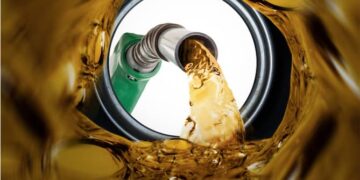NPA generates $4 million from $80/mt tax on LPG in yet-to-rolled-out Cylinder Recirculation Model
Executive Director of the Centre for Environmental Management and Sustainable Energy (CEMSE), Benjamin Nsiah, has revealed that the National Petroleum Authority (NPA) has generated some $4 million in revenue since the imposition of the $80 per metric ton tax on liquefied petroleum gas (LPG) consumption from April 1, 2024.
Speaking at a press briefing on May 23, 2024, Mr Nsiah detailed the tax’s impact, which has been designated to fund Bottling Plants and Cylinder Investment Margins under the yet-to-rolled-out Cylinder Recirculation Model (CRM).
He emphasized that this levy, equivalent to GHS 1,040 per metric ton, has contributed an additional GHS 1.20 per kilogram to LPG prices, pushing the cumulative taxes, levies, and margins on LPG beyond GHS 3 per kilogram.
This increase, he argues, has made Ghana’s LPG one of the most expensive globally, adversely affecting consumption among Ghanaians.
“One of the justifications for the imposition of the $80/mt tax by the NPA is to use $36/mt to invest in cylinder manufacturing. But this makes the consumer pay over 100 times the cost of a cylinder because the average lifespan of an LPG cylinder is 10 years, consumers will be paying between GHS 365 and GHS 700 for a 5kg cylinder which is currently sold at GHS 120,” he quipped.
“Another justification is that the $44/mt out of the $80/mt will be used to pay the bottling plants which goes against the consumer again because the LPG marketers were bottling and filling cylinders and charging their margins in cedis and for that matter charging in dollars goes against the consumer,” he added.
Citing recent data from the Association of LPG Marketers, Mr Nsiah pointed to a discernible downturn in LPG usage since the tax’s implementation. This trend is consistent with the broader decline in consumption, which saw a 13% reduction in 2022.
The Association of LPG Marketers views the new tax as regressive, hindering investment, discouraging competition, and imposing higher costs on consumers. This, the association argues, will reduce accessibility to clean cooking fuel for Ghanaian households.
The current LPG penetration rate in Ghana stands at 36%, significantly below the government’s target of achieving a 50% penetration rate by 2030. Mr Nsiah contended that the present tax structure directly contradicts the 50% objective.
He therefore urged the government to urgently suspend all taxes on LPG, highlighting the contradiction between current tax policies and the government’s stated goals.
He further recommended that the NPA halt the $80 per metric ton tax to foster greater LPG usage. He asserted that the financial burden imposed by such taxes discourages consumer adoption, thereby hindering progress towards the country’s penetration targets.
“The cylinder re-investment fee should also be scrapped and a new model introduced to allow marketers sell LPG cylinders to consumers and after payment is done the consumers own the cylinder and exchange them at the exchanging points. This allows the consumer to pay for the market price of LPG cylinders other than paying over the market price as introduced by the NPA,” he added.
The press briefing underscored the complexities faced by Ghana as it seeks to enhance its energy infrastructure while making LPG accessible and affordable. The government’s response to the recommendations by the Centre for Environmental Management and Sustainable Energy (CEMSE) will be pivotal in shaping the future landscape of LPG consumption and sustainability in the country.










